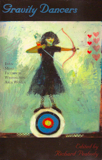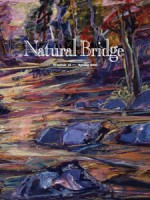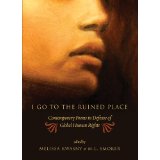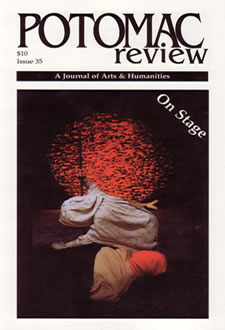Poetry

Gravity Dancers: Even More Fiction by Washington Area Women
Richard Peabody, ed.
Are there really that many women writing fiction in the DC area? Apparently so. What are they writing about? You name it. Sex, death, love, hate, birth, murder, children, parents, revenge, the endless war, and somehow laughter among the grim choices in an even grimmer world.

Diaspora
From the Guest Editor, Eamonn Wall: Issue No. 13, Spring 2005
“Before the advent of air travel, it was customary to hold an ‘American Wake’ in rural Ireland to honor the man or woman who was departing the home place for America. Almost always, these ‘all nighters’ ended when the car, bus, or horse and trap, arrived to take the emigrant to the nearest train station or port to begin the long journey of separation.

I Go to the Ruined Place
Melissa Kwasny and M.L. Smoker, eds.
“. . . When we [Melissa Kwasny and M.L. Smoker] made our call for submissions for an anthology of poems in defense of human rights, the allegations of torture were foremost in our minds. We knew people were outraged, saddened, profoundly moved and ashamed.

“Sal” and “A Late Farewell to My Own Prospero”
(80th Anniversary Anthology of Poems, The Poetry Society of Virginia, 2003)
“Common Rendition”
(I Go to the Ruined Place: Contemporary Poems in Defense of Global Human Rights,
Melissa Kwasny and M.L. Smoker, eds., Lost Horse Press, November 2009)
“Between Water and Stone”
(In Good Company, Live Wire Press, Spring 2005)